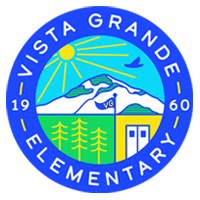Social-Emotional Learning
Social Emotional Learning Programs
Social Emotional Learning Programs ![]()
Social Emotional Learning Programs
Kimochis (TK)
Kimochis is a TK social-emotional learning (SEL) program designed to help children recognize, understand, and manage their emotions. The word kimochi means "feeling" in Japanese. The program uses plush characters with distinct personalities, small pillows that represent different emotions, and a research-based curriculum to teach kids how to express their feelings in healthy ways, build empathy, improve communication, and solve social problems. Kimochis helps children develop confidence, resilience, and stronger relationships with others.
Character Counts (First Grade)
Character Counts is a character education program that helps students develop strong values through six core pillars: trustworthiness, respect, responsibility, fairness, caring, and citizenship. In first grade, students dive deep into each pillar and celebrate their learning by performing a special end-of-year play that highlights the meaning and importance of these traits.
Positivity Project (Grades K-5)
The Positivity Project is a school-wide program that teaches children to recognize and develop positive character traits in themselves and others. The program focuses on 24 strengths—such as kindness, bravery, teamwork, and gratitude—through daily lessons and weekly themes. Each week, students focus on a different strength through conversations and classroom activities. The goal is to help children develop character, build healthy relationships, grow in confidence, and understand that how we treat others matters.
Collaborative & Proactive Solutions Model (All Grades)
Collaborative and Proactive Solutions (CaPS) is a helpful approach to support students when they’re having a hard time with behavior or expectations. This approach is based on the idea that “kids do well if they can.” When a child is struggling, we work to understand what’s getting in the way and solve the problem together. We do this by:
- Listening to the student’s perspective
- Sharing adult concerns
- Working together to find a solution
CaPS helps build trust, reduce conflict, and teach important life skills like problem-solving and communication.
Zones of Regulation (All Grades)
SRVUSD implemented the Zones of Regulation district-wide in our 22 elementary schools. The Zones of Regulation framework and curriculum teach students to build awareness of their feelings, learn and utilize a variety of tools and strategies for emotional regulation, social skills, self-care, and overall wellness. Students learn different strategies for mindfulness, healthy connections with others, and thinking strategies. In addition, The Zones of Regulation incorporates Social Thinking concepts to support students in understanding how their behavior affects others, problem-solving, and conflict resolution.
No Place for Hate School (All Grades)
No Place for Hate School (All Grades)Vista Grande works continuously each year to be recognized as a No Place for Hate School through several school-wide projects that involve all students to encourage a welcoming school climate and a culture of inclusion. Vista Grande chooses three to four projects to implement each school year that celebrates the diversity and individual differences of our school community.
